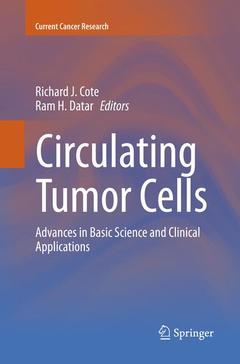Richard J. Cote, M.D., is Chair, Department of Pathology, the University of Miami
Miller School of Medicine and the University of Miami Health System, and
Chief of Pathology, Jackson Memorial Hospital. As well, he is Director, the University of Miami Biomedical Nanoscience Institute. Dr. Cote, the recipient of more than $35 million in peer reviewed grant support, holds numerous patents for cancer-related and nanoscale technologies. Dr. Cote also serves as a member and advisor to numerous national and international study groups, cancer programs, and societies—including the National Cancer Institute. The editor and co-author of standard handbooks, Dr. Cote has published more than 300 scientific papers/documents, which have received 10,000 citations.
Ram Datar, Ph. D., is Co-Director, Biomedical Nanotechnology Institute, the University of Miami, Associate Professor, Pathology, Associate Professor, Biochemistry and Molecular Biology, the University of Miami Miller School of Medicine. Dr. Datar's areas of research focus include cancer
molecular pathology and biomedical nanotechnology. Specifically, he has
been involved in various aspects of detection and molecular characterization of occult metastases in cancers. For many years, he has also been involved in the development and application of micro- and nanoscale devices for biomedical diagnostic applications. His goal is to employ microfabrication and develo
pment of microfluidic devices to further novel technology
development, including biosensors and molecular methods to analyze expression profiles of cancers. Dr. Datar's many publications have received more than 2,200 citations.




